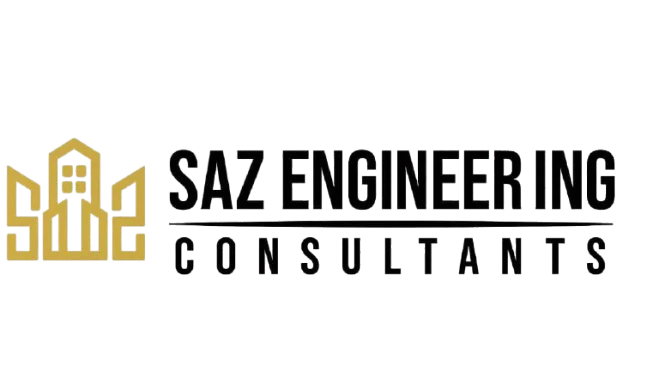Launching an Engineering Consultant firm is a bold and rewarding move — but it’s not without challenges. As demand for technical problem-solvers rises, so does the competition. New firms often stumble due to poor planning, mispricing, or lack of clarity in positioning. To build a thriving Engineering Consultant practice, we must anticipate these pitfalls and outmaneuver them from day one.
Lack of a Clear Value Proposition
New Engineering Consultant firms frequently struggle to articulate what makes them unique. Generic branding and unclear messaging lead to confusion among potential clients.
To avoid this:
- Define a specialization — such as structural design, energy systems, or environmental compliance.
- Showcase case studies or results that highlight ROI and measurable impact.
- Craft a compelling value statement: “We help X achieve Y through Z.”
This positions us as specialists rather than generalists, allowing us to attract high-value clients who seek expert guidance.
Underpricing Services Due to Insecurity
Many startup Engineering Consultant firms fear scaring away clients with high prices. This leads to undercharging, overdelivering, and burnout.
How we fix this:
- Conduct industry benchmarking and determine premium market rates.
- Tie pricing to outcomes, not hours.
- Offer value-based packages with clear deliverables and benefits.
Premium clients expect premium service — and are willing to pay for confidence, not discounts.
Poor Business Infrastructure and Systems
An exceptional engineer doesn’t always make an effective business owner. Many Engineering Consultant startups lack backend systems to scale efficiently.
We implement:
- CRM software to manage leads and clients.
- Automated invoicing and bookkeeping tools.
- Project management systems to track deliverables, deadlines, and revisions.
- Legal templates for contracts, NDAs, and SOWs (Statements of Work).
Building scalable systems frees up time to focus on billable work and growth strategy.
Inconsistent Client Acquisition Strategy
Hope is not a marketing strategy. Relying solely on referrals or word-of-mouth leaves too many Engineering Consultant firms with dry pipelines.
Instead, we deploy a multi-pronged client acquisition approach:
- Content marketing through LinkedIn, blogs, and whitepapers
- Speaking engagements at industry events
- Targeted outreach to procurement teams and decision-makers
- SEO-optimized web presence that ranks for local and niche engineering queries
Consistent lead generation removes the feast-or-famine cycle many consultants face.
Ignoring Legal and Insurance Protections
Legal missteps can destroy a promising firm. Many engineers skip essential protections during launch, exposing their firm to liability.
We ensure:
- We register our business as an LLC or Corporation.
- We carry Professional Liability Insurance (Errors & Omissions).
- Every project is protected by signed contracts detailing scope, timeline, and payment terms.
Risk management is not optional — it’s survival.
Lack of Clear Niching and Differentiation
Trying to serve everyone serves no one. New Engineering Consultant firms often offer a wide scope of services, diluting their brand and overwhelming internal resources.
We identify a profitable niche based on:
- Industry demand (e.g., renewable energy, AI-driven design)
- Unique strengths or certifications
- Problems we’re passionate about solving
This tight focus leads to higher rates, stronger referrals, and more efficient project execution.
Underinvesting in Brand Presence and Authority
Too many firms rely on word-of-mouth without building a compelling online identity. In today’s digital-first world, credibility starts online.
We establish authority with:
- A professional website with service pages, case studies, and trust badges
- SEO-optimized blog content showcasing our expertise
- Active LinkedIn profile with client testimonials
- Guest features in relevant industry publications
This credibility converts browsers into buyers before we even hop on a call.
Neglecting Client Experience and Relationship Building
Getting the contract is only the start. Failing to communicate, update, and exceed expectations damages our firm’s reputation.
We avoid this by:
- Providing regular progress updates
- Gathering feedback at key project milestones
- Creating post-project follow-up plans or ongoing retainer options
- Sending thank-you gifts or personalized emails after completion
A smooth, professional client journey leads to long-term loyalty, referrals, and consistent income.
Avoiding Financial Planning and Growth Strategy
Running lean is smart — running blind is not. Many new firms have no financial forecasts, growth metrics, or reinvestment strategy.
We map out:
- A 12-month financial projection
- A reinvestment plan for marketing, tools, and talent
- Metrics to measure growth: revenue per client, project margins, win rates
With clarity on growth, we scale intentionally and profitably.
Conclusion
Launching an Engineering Consultant firm is a high-opportunity move — but only if done right. By avoiding these common pitfalls and focusing on value, infrastructure, and authority-building, we lay the foundation for a resilient and profitable consultancy. With proper planning, niche clarity, and a client-centric approach, we don’t just survive — we lead.
FAQs
Q1: What’s the most common mistake new Engineering Consultant firms make?
The most common mistake is underpricing services due to lack of confidence. This damages long-term profitability and undermines brand value.
Q2: How do we choose a niche as a new Engineering Consultant firm?
Choose based on your unique experience, certifications, and market demand. Use tools like Google Trends and LinkedIn to test demand for that specialty.
Q3: What are essential legal documents we need?
Always have a contract agreement, scope of work (SOW), NDA, and terms & conditions tailored to engineering consultancy services.
Q4: How do we compete with larger firms?
By being more specialized, agile, and personal. Build authority in a niche and offer high-touch service that larger firms can’t match.
Q5: How soon should we invest in marketing and branding?
Immediately. Your digital presence is often the first impression. A professional brand and SEO-optimized site generate credibility from the start.
For more information: AMC Engineer BIM Services















Leave a Reply